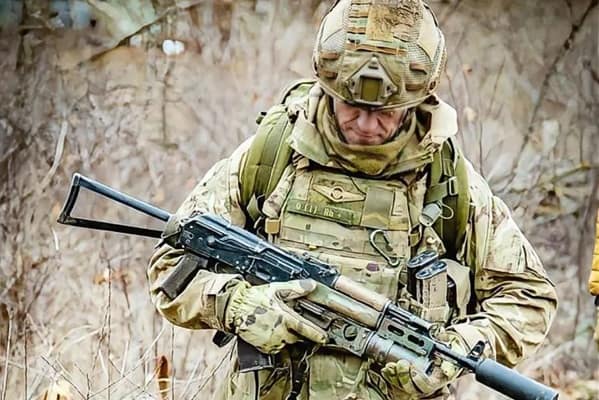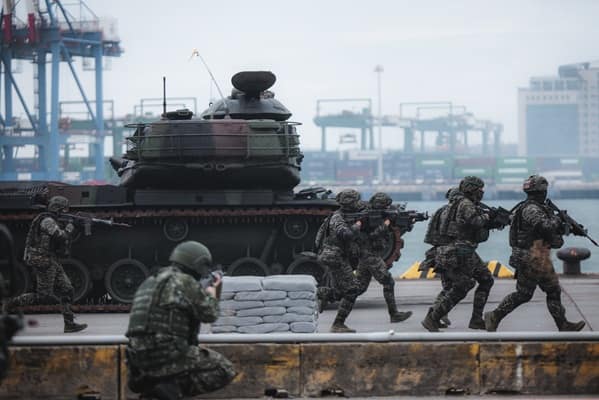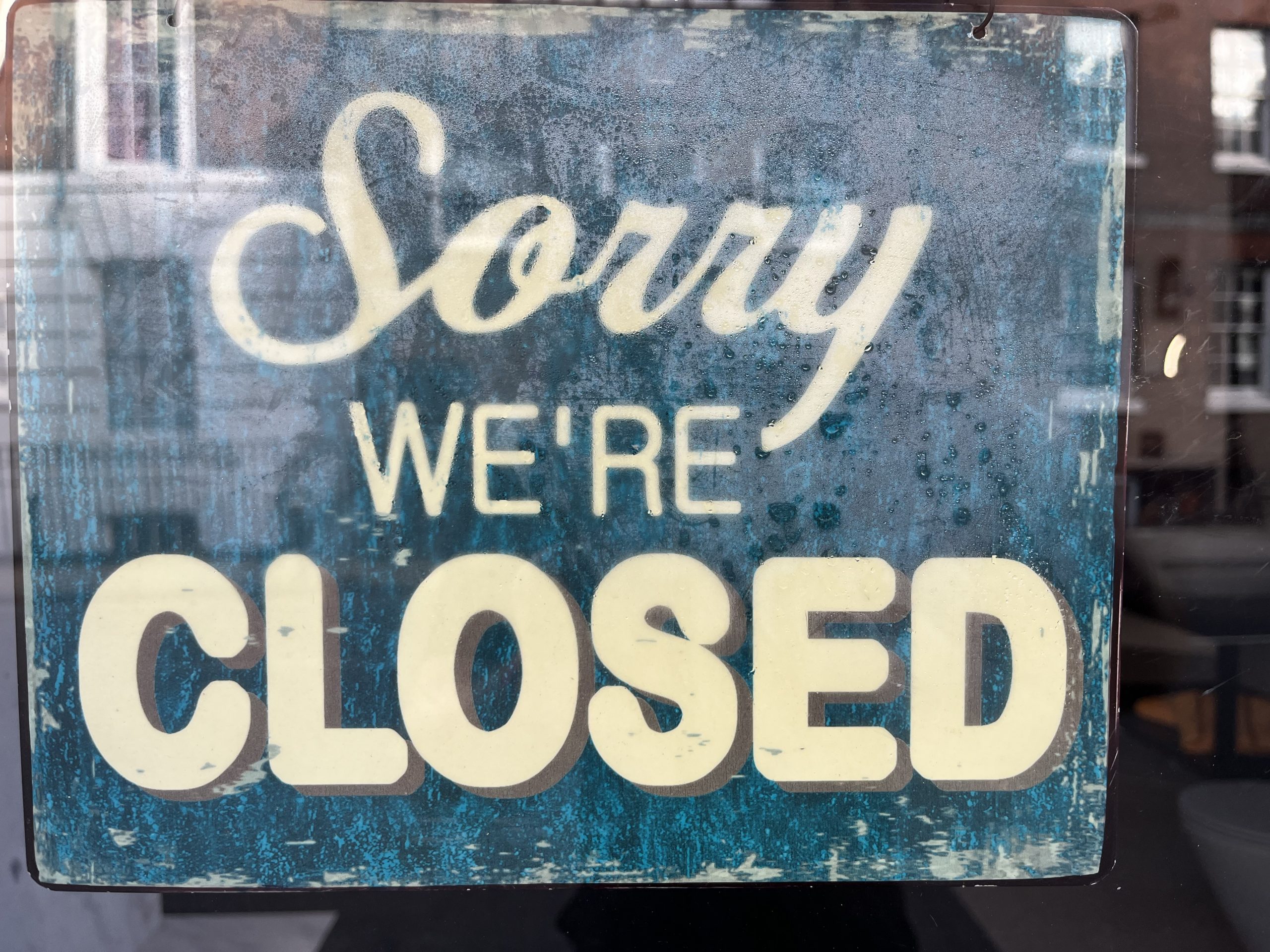When people hear my name these days, it’s usually followed by “former British soldier captured in Mariupol.” Or worse, “foreign fighter” as if I’d spent my weekends pledging allegiance to some jihad.
The truth is simpler: I was a Ukrainian Marine. Why journalists find it so hard to say that without choking on their morning coffee, or realising they’re parroting a Russian talking point is beyond me.
I never left the country I had legal status in. My family are Ukrainian. But “Ukrainian Marine” doesn’t sell newspapers; “mercenary” does. It fits the Hollywood script, men chasing glory and gold. If £380 a month counts as life-changing money, then sure, I was a minimum-wage mercenary in Russian eyes and, occasionally, in the eyes of the lazier corners of the Western press.
© Shaun Pinner
Headlines. That’s how most stories about me begin, usually about Ukraine, and almost always horrific. Rocket attacks on hospitals. Prisoner exchanges. My own captivity. I feel a mix of obligation, stubbornness, and responsibility to report what’s actually happening on the ground, but before the cameras, before the Kremlin’s propaganda circus, there was just a bloke from North London who liked soldiering, strong tea, and cricket, and who had once promised himself to stay as far away from media and social media as humanly possible.
From North London to the Front in Ukraine
I joined the Royal Anglian Regiment straight from school, a regular British Army infantry unit, long before Ukraine meant anything to anyone outside the post-Soviet world. I was part of that generation of squaddies who came of age in the tail-end of Bosnia, Northern Ireland, and the uneasy peacekeeping years that left you older than your passport said but grateful for the mates who kept you sane.
I left the Army in 1999 looking for something different, though “different” soon translated into “trying to find where you fit once the regiment isn’t around to tell you.” Soldiering has a way of calling you back, the structure, the banter, the sense of purpose you can’t replicate on civvy street.
After struggling for those first 2 years I found my feet, but by then, my 1st marriage had failed spectacularly. I spent the next 16 years cultivating my own business in Hazardous Waste Management but by 2016 was bored and unhappy, by 2018 I was in Ukraine and by 2020, I was married to my wife Larysa, and serving in the Ukrainian Marines. Not because I was chasing adventure or pay cheques, though I won’t lie, there’s always a touch of that in any soldier, but because by then, Ukraine had become home. Especially the industrial port city of Mariupol, perched on the Azov Sea, where shipyards, steelworks, and stubbornness defined the place.
When asked why I had joined the Ukrainian military? I once told Andrew Marr on LBC, “I just didn’t really have any transferable skills to offer” He laughed and said, “You’ve got a few, Shaun.” Maybe he was right, I was referring to trade or academic skills, but I was good at soldiering, good at surviving, and I’d learned to adapt to accents, to cold, to bureaucracy written in Cyrillic and the silver stamp that governs Ukrainian paperwork. I just didn’t know yet how much that would matter later.
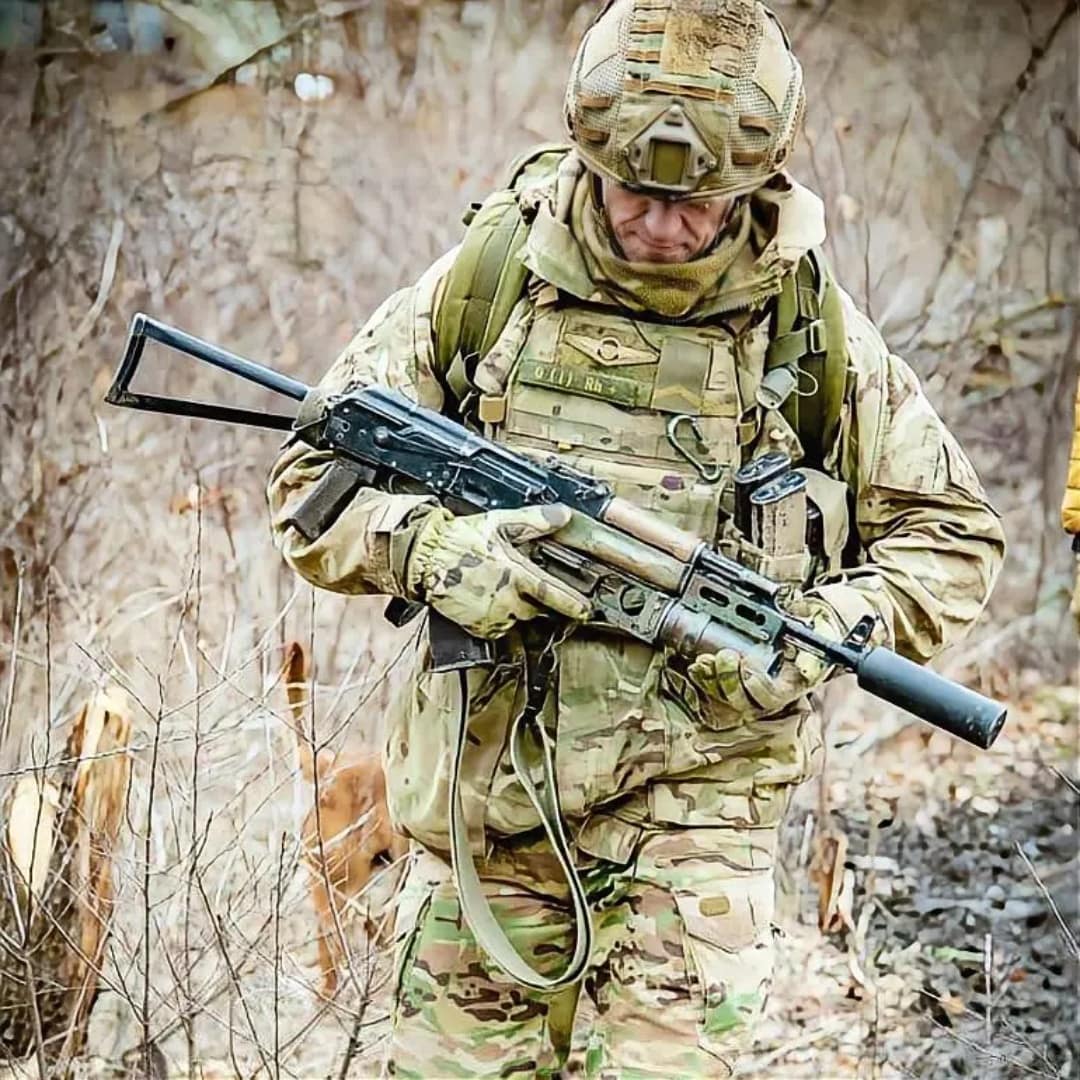
© Shaun Pinner
The Road to Mariupol
By the time Russia launched its full-scale invasion in February 2022, I was already deep in the system, fighting alongside Ukrainian Marines in the 36th Brigade, 1st Battalion. It was my fourth rotation on the frontline and my second as a section commander.
I’d lived so long in eastern Ukraine that I’d learned Surzhyk (Суржик – SOOR-zhyk): the Azov coast’s mongrel tongue, half-Ukrainian, half-Russian, peppered with slang from dockyards and army mess halls. A hybrid language born of empire and endurance. If you wanted to survive here, to be accepted, you spoke it. Russian’s after all didn’t speak Ukrainian and as a bi product of years of Kremlin oppression & Soviet Colonialism, it was just easier for Ukrainians to speak Russian or a mix.
So when Mariupol came under siege, it wasn’t some abstract headline. It was my city, my home, my friends, my adopted country. I’d integrated, learned the culture, the humour, the fatalism. I’d eaten borshch by candlelight when the power went out, hauled water from wells, and learned that Ukrainians curse in Russian but dream in Ukrainian. Cursing is something to behold and of course I needed all those in my vocab armoury to fight back against the preverbal Ukrainian micky take.
The siege was a grind: cold, smoke, concrete dust, and endless incoming fire. Russia had air superiority from day one. Our old Igla shoulder-launched missiles were like firing peashooters at MiGs. Every day the city shrank under fire until our positions were cut off 200 kilometres deep by early April. Nobody was coming for us.
I was stationed at the Illich Steelworks, north of the city. While Azovstal gets the documentaries, it was the Marines who first met the Russian armour as it poured across the border on 24 February 2022. My unit was based near Pavlopil, a small village about 35 minutes east of Mariupol, practically walking distance from my own flat on the Left Bank.
I once told a journalist from Al Jazeera where I lived, just before the full-scale invasion. She called it “ambitious.” She wasn’t wrong. By early 2022, attention around me and Aiden Aslin, another Brit serving with Ukrainian forces, had grown. We’d been doing interviews to explain the build-up, trying to counter Russian disinformation before it exploded. Neither of us realised that within weeks we’d become part of the story, the “tip of the spear”, as one commander put it, and right up shit creek without so much as a paddle.
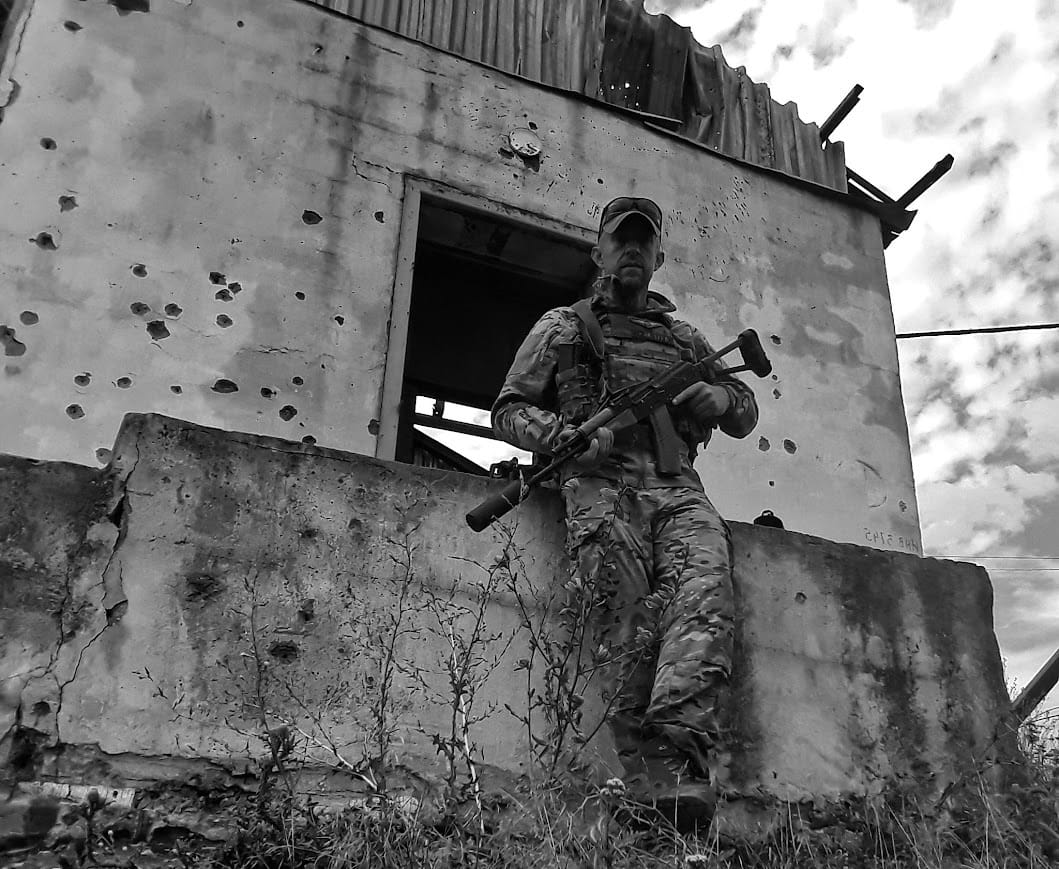
© Shaun Pinner
We even had a contingency plan, jokingly named Operation Anne Frank, a code among the few Westerners serving locally. If the Ukrainian command structure disintegrated, a handful of us would fall back to my apartment, sit tight, and work on an escape and evasion route back to friendly lines. It sounded clever on paper. In reality, it was wishful thinking.
A fighting withdrawal back to Mariupol was always the plan. Meeting Putin’s invasion head-on in open fields would’ve been suicide. From that first day, I knew our job: delay them, buy time, and kill as many as we could before the siege closed in.
We held on as long as humanly possible. When the ammunition finally ran out, when the air defence went silent, when sixty percent of our company were dead or wounded, we switched to Plan B: survive, regroup, fight another day.
But before I jump ahead, it’s worth dragging things back a bit to how a London lad ended up fighting for a country that wasn’t yet his by passport, but had already claimed his heart.
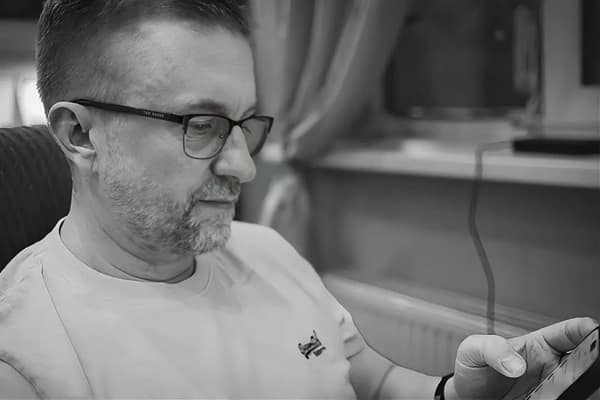
© Shaun Pinner
A Dictator’s Playground
My path to the Marines had been transactional. Before that, I served as a sniper instructor with the National Guard, specifically Azov. Between 2018 and 2020 it was the best job I’d ever had: teaching soldiers, many of whom were younger than my T-shirts I wore down the pub, how to defend their homeland after the annexation of Crimea.
We trained through scorching summers and brutal winters, minus thirty, snow up to your knees, all while living in Viktor Yanukovych’s old beach house. The same mansion where Ukraine’s disgraced ex-president once entertained oligarchs was now filled with rifles, maps, and the smell of gun oil. A dictator’s playground turned sniper school. Private beach, Olympic-sized pool, sauna – surreal, really.
Under Ukrainian law at the time, foreigners couldn’t formally serve in the National Guard. As a non-citizen, I was technically there under short-term agreements and training contracts, tolerated rather than officially enlisted. When I married Larysa, the rules changed again. If I wanted to stay, the tourist visa had to go. So I signed a full military contract, gained residency, and threw in my lot with Ukraine for good.
It wasn’t just about paperwork. By then, I’d found a community, soldiers, fishermen, teachers, lads who’d built lives out of the ashes of 2014. In the UK I’d always been another number in a long line of veterans trying to find purpose. In Mariupol I was someone who mattered. Life was simpler, cheaper, freer. Less claustrophobic. Ukraine gave me space to breathe.
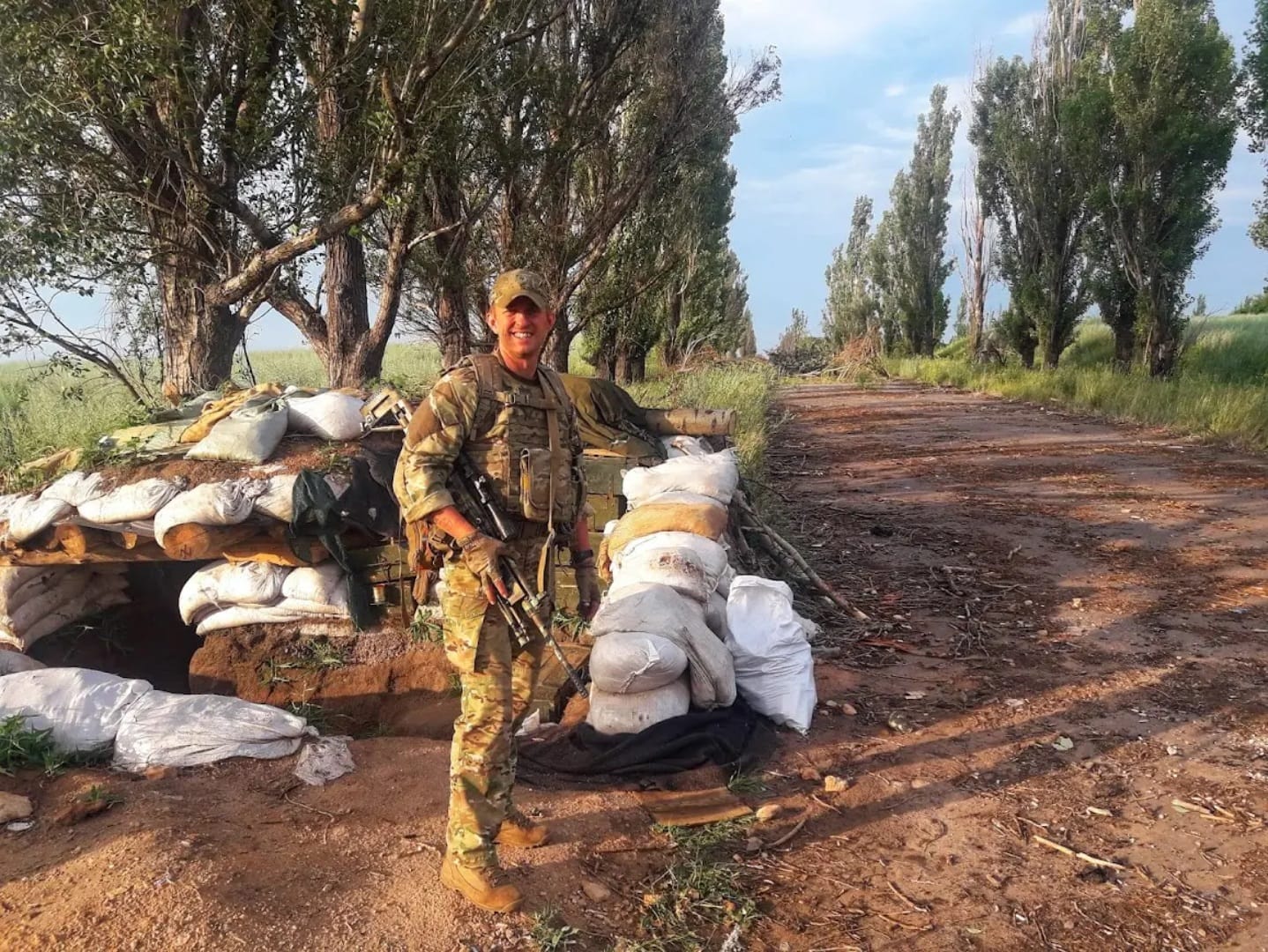
© Shaun Pinner
Old Dog, New Tricks
The transfer to the Marines turned out to be the right call. Azov had kept me fit, super-fit for someone in his mid-forties, but the Marines pushed it further. I became the first international to complete every stage of Ukrainian Marine parachute training, leaping from Soviet helicopters with parachutes that looked like they belonged in a museum.
I passed their brutal beret test, earned promotion, and took command of a frontline position that drew plenty of attention. My call-sign became Old Dog — stara sobaka. It stuck. And if you know the military, you’ll know that once you’ve got a nickname, you’re part of the family.
It wasn’t all smooth sailing. My Western gear, Garmin watches, chem-lights, optics, Buffalo fleeces, and a high-cut ballistic helmet, made me look like a walking NATO catalogue. To some of the lads, it inspired envy. To others, curiosity. Most Ukrainian Marines couldn’t afford that sort of kit, and while the Azov National Guard I’d trained with had adopted modern NATO-style tactics and decentralised command, the Marines were still rooted in the Soviet playbook, heavy on hierarchy, light on initiative. It felt like stepping back in time.
But slowly, things shifted. Jokes replaced suspicion. My Ukrainian improved. I learned when to push, when to shut up, when to nod. Respect here wasn’t automatic; it was earned trench by trench mission by mission helped by an experienced English speaking platoon commander call sign ‘Bear’. The boys nicked named him ‘Harley’ after the motorcycle he rode and his love for Americana. A veteran of Donetsk Airport and part of the legendary ‘Cyborgs’, if you don’t know then I will strongly advice you look up that story, I couldn’t of been in better hands.
To be continued in Part Two: “Into the Fire.”
Shaun Pinner BIO: Author, Public Speaker, and Recipient of Ukraine’s “Order of Courage” for selfless acts in the defence of Ukrainian sovereignty.
A proud husband and father born near Watford, England, I served for nine years in the British Army’s Royal Anglian Regiment, including deployment with the UN in Bosnia during the early ’90s. Trained in Survival, Evasion, Resistance, and Escape (S.E.R.E.) as part of the 24 Airmobile Brigade, I continued my military journey by joining the Ukrainian Armed Forces in 2018 as the country rebuilt its military following the annexation of Crimea.
Initially serving as a Sniper Instructor with the Ukrainian National Guard in Mariupol, I transferred to the Ukrainian Marines in 2020—becoming the first foreigner to command a frontline position as a Ukrainian soldier. I passed all aspects of Ukrainian parachute training and earned the prestigious Blue Beret with the Air Assault Company of the 1st Battalion, Ukrainian Marines. On my fourth deployment and second as a Section Commander, I was stationed at a forward listening post when Russia launched its full-scale invasion in February 2022. I led a fighting withdrawal back to Mariupol over several days—a story recounted in my book Live. Fight. Survive.
The book details my life before Ukraine, my service on the frontlines, and the intense battle for Mariupol. Most powerfully, it recounts my capture, torture, and death sentence at the hands of Russian proxy forces (the so-called DPR), and my eventual release in a dramatic prisoner exchange brokered by Saudi Crown Prince Mohammed bin Salman, Roman Abramovich, and the Ukrainian government.
Since my release, I’ve been awarded one of Ukraine’s highest honours by President Volodymyr Zelensky. I now brief NATO forces and S.E.R.E. schools globally, speak regularly in the media on geopolitical developments involving Ukraine, and recently won a landmark legal case holding Russia accountable for my treatment in captivity. I continue to reside in Ukraine, supporting my Ukrainian wife in humanitarian efforts and standing firmly in support of the country’s future
